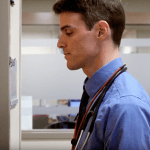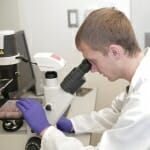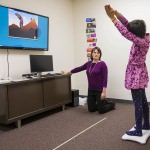Category Health & Wellness
Progress made toward treatment for rare, fatal neurological disease
Promising results in the lab and in animal models could set the stage for developing a treatment for Alexander disease, a rare and usually fatal neurological disease with no known cure. Read More
‘Amazing Grace’ chorus members take a vacation from Alzheimer’s with singing
The Amazing Grace chorus mixes caregivers and people with dementia; to encourage social contact, the pairs seldom sit side-by-side at performances. Read More
Monkeys infected by mosquito bites further Zika virus research
Monkeys who catch Zika virus through bites from infected mosquitoes develop infections that look like human Zika cases, and may help researchers understand the many ways Zika can be transmitted. Read More
Researchers investigate how a stressed brain can make asthma worse
Researchers are investigating cross-talk between the brain and lungs of people with asthma in a four-year, $2.5 million study to understand how psychological stress can make asthma symptoms worse. Read More
Designer molecule points to treatment for diseases caused by DNA repeats
“Most young people with Friedreich’s ataxia develop severe heart problems and are wheelchair-bound," says researcher Aseem Ansari, "but the disease is so rare that few drug companies invest in it." Read More
Medical minds
Knowing that your doctor is under stress may not be comforting, but it might put you more at ease to know that mindfulness — the practice of training your brain to cultivate well-being — is now being taught in medical school. Read More
Research to relieve stress of police officers expands
The new work by the Center for Healthy Minds will expand on a pilot study that suggests a positive relationship between mindfulness training and measures such as sleep quality, officers’ perceived stress and symptoms of burnout. Read More
Video game improves balance in youth with autism
Balance challenges are more common among people with ASD, and difficulties with balance are thought to relate to more severe ASD symptoms and impaired activities in daily living. Read More
Better health through the humanities
A new certificate teaches students historical, cultural and philosophical ways people intersect with health care and provides them a broader, more nuanced understanding of health. Read More
In the heart of devastating outbreak, research team unlocks secrets of Ebola
In a study of blood samples from Ebola patients in Sierra Leone, the team led by UW–Madison's Yoshihiro Kawaoka has identified signatures of the disease that may aid in future treatment efforts. Read More
Doctor, take your meditation
The Center for Healthy Minds at UW–Madison works to cultivate well-being and relieve suffering through a scientific understanding of the mind. Applying its teachings helps doctors better cope with the stresses of their profession. Read More
Amid midterms, finals, one class is teaching students how to relax
With a midterm season that never seems to end and finals just around the corner, there’s very little time to relax, let alone simply take a breath. But one class on campus is helping students do just that. Read More
Study: Yoga reduces falls among the elderly
Participants in a study saw significant improvements on two measures of walking gait, and on balance, after 8 weeks of yoga classes. Read More



















